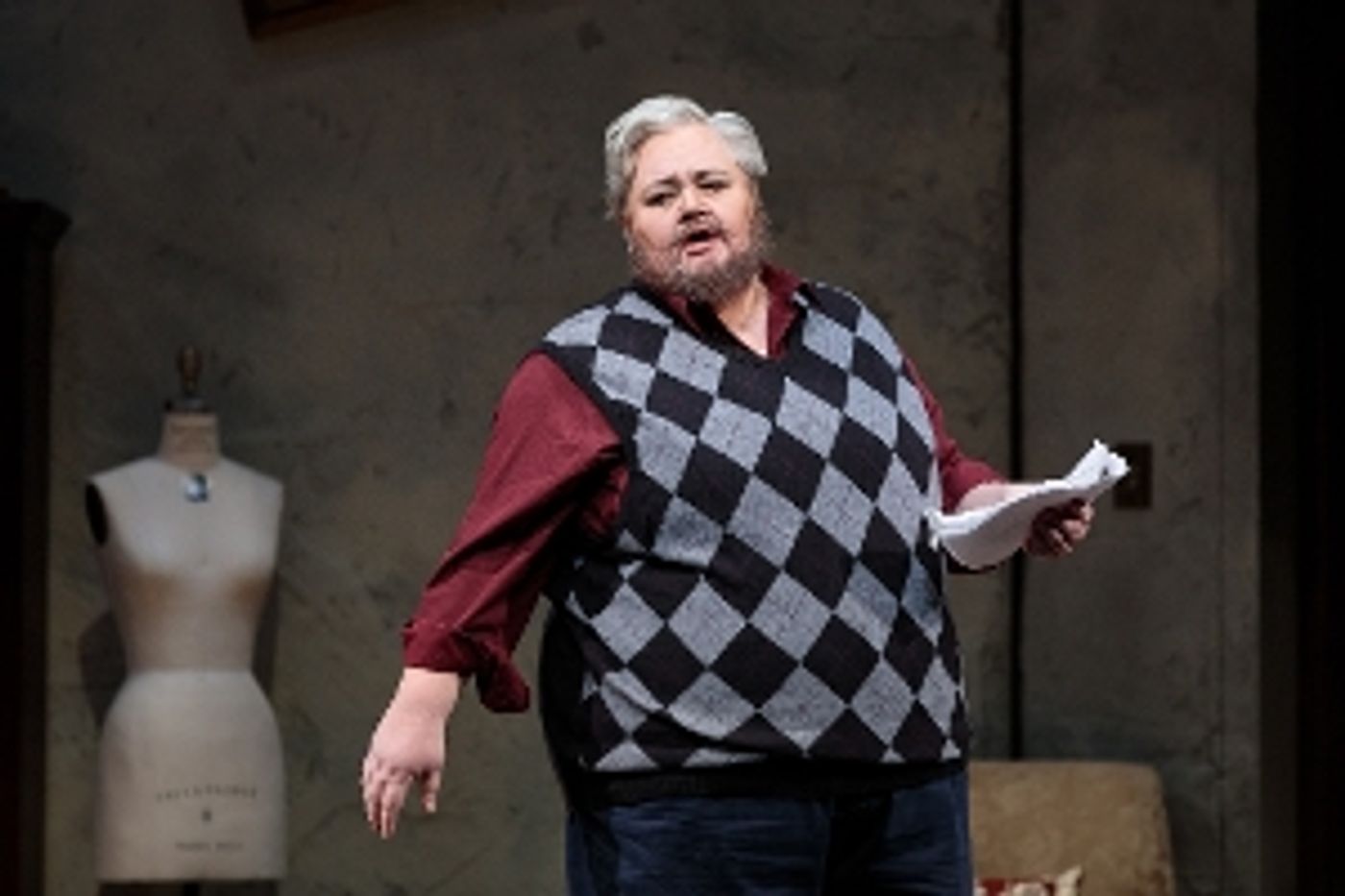Interview: Stephanie Blythe of SAN DIEGO OPERA'S PUCCINI DUO at The San Diego Civic Theater
Mezzo-Soprano Stephanie Blythe Sings Baritone in San Diego Opera's Puccini Duo

Concluding Part 3
Stephanie Blythe looks for "creativity, imagination, and curiosity" in her students. The first two are required of any good artist. Curiosity is slightly less obvious, but she credits it to her ever-expanding interests. Kate Smith led to reading about songwriters, which In turn led to playing the ukulele, then writing her own songs and designing new concerts and cabaret shows.
So far none of her many other interests have prevented her from taking on new operatic roles, the most recent is the lead in Puccini's Gianni Schicchi, yet another example of an opera she's done before in a different role. She sang Aunt Zita, a comedic troublemaker, as a mezzo-soprano, first as a 17-year-old college freshman and later with the Met. This time the vocal leap is even greater than her switch between mezzo and tenor in Carmen. Zita is a contralto, Schicchi a baritone. Can she sink any lower? (Vocally that is.) Well, one of the roles she's best known for is Mistress Quickly, also contralto in Verdi's Falstaff. She'd love to take on the tragicomic lead (bass-baritone.) Stay tuned.
When we switched to a discussion of opera's popularity or lack thereof, I suggested that many thought of the genre as elitist.
"I've almost never come across a performer who thinks about opera as elitist. But I've come across plenty of people who present it that do. Opera wasn't written in the beginning for a specific demographic, it was written for people as entertainment."
New York Times critic Bernard Holland agrees. He once wrote that, in addition to royalty and the rich, " Mozart spoke ... to the people in the streets who wanted their opera in German, preferably in Viennese dialect ... The Magic Flute was the 18th Century's Sound of Music and The Producers in one."
Blythe said, "Opera is big and broad and friggin' expensive, right? I think that we are coming to a place now, where everyone who presents opera realizes that people want an event, they want to be touched, and to feel like they're a part of it. When my dad went to see the Met's HD broadcasts, he didn't talk about the singing, he talked about the stage, intermission and seeing everything that happened backstage.
"Opera is only thought of as elitist because the industry decided that's what we wanted to appeal to." We didn't have time to discuss that further, but I believe the industry has driven itself to "friggin' expensive," and that's a subject that would have made this a six-part article. Instead, we ended with Blythe's impression of the San Diego Opera, the upcoming production, and a final very personal thank you, especially appropriate near Valentine's Day.
"I love the fact that this company has shown very clearly that the audience wants them. (Public support prevented bankruptcy.) And it went to great lengths to support its audience and its artists during the pandemic. I think they were really in the top echelon of American companies who were dealing with the pandemic in a smart way, a way that supported artists and led to interesting performances in new venues.
"The generosity the company has shown me over these years has really been lovely, and it just makes you want to keep coming back and inspires you to do better. Both of these casts are wonderful, and I'm very much looking forward to the performances.
"I also have to give a big shout-out to my husband. We've just celebrated our 21st anniversary. And I don't know how I would have done any of this without him."
For time and ticket information visit here.
Part 1 of this interview can be seen here and go here for part 2.
Photo Carli Cadel
Videos

